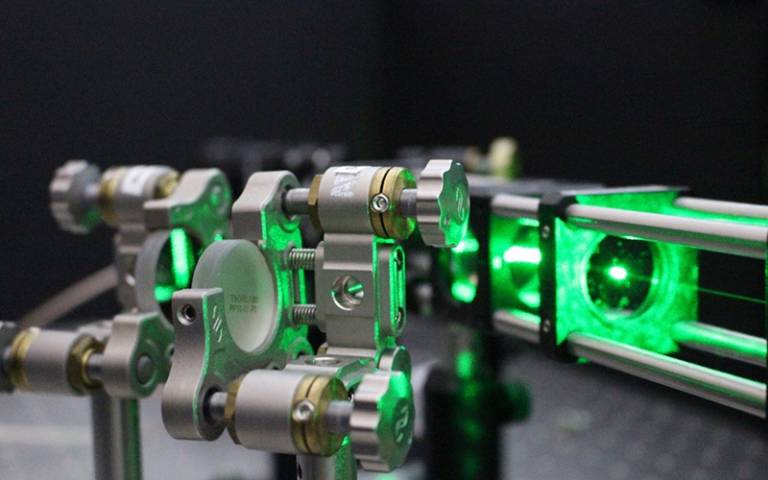New project will take a step towards answering whether gravity is quantum
A consortium of the universities of Yale (USA), Northwestern (USA) and Warwick (UK) and Groningen will develop an experiment to test whether gravity is a quantum phenomenon. This research contributes to a better understanding of black holes, the Big Bang and the universe. Of the University of Groningen, professor of theoretical physics Anupam Mazumdar ( Van Swinderen Institute ) is consortium partner.
The scientists will receive a total of $3.25 million for their research. Most of this is awarded by the Alfred P. Sloan Foundation, a US non-profit foundation that supports high-quality scientific research. Several other US foundations are also contributing. The project is called ‘MAST-QG: Macroscopic superpositions towards witnessing the quantum nature of gravity’.
Big unanswered question
The project aims to answer the question of whether gravity falls under the laws of quantum mechanics, which has been one of the big unanswered questions in physics for centuries. It is based on the theoretical proposal ‘Spin Entanglement Witness for Quantum Gravity’ by Mazumdar, which he published with colleagues from the UK in 2017.
The Experiment: Levitating Micro Diamonds
In quantum mechanics, which describes the behaviour of atoms and molecules –objects behave differently to everything we know: they can be in a quantum superposition of being in two places at the same time. The scientists will investigate a way to determine whether gravity operates in this way, by levitating microdiamonds in a vacuum. If gravity is quantum, it will ‘entangle’ the diamonds – an intriguing phenomenon which strongly links two objects in ways impossible in everyday life.
Important research
Mazumdar underlines the importance of the research: "This is one of the deepest questions about our universe. Answering this question will be similar to the discovery of the Higgs Boson at the LHC, the detection of gravitational waves by LIGO/VIRGO and the realisation of the Bose-Einstein condensate in a lab."
Prototype Experiment
There are still many challenges to realizing this idea, which the team will investigate during the project. The actual experiment will take at least a decade to realise. In the next five years time, the consortium will try to create a pathfinder experiment on a smaller scale.
The team behind the experiment
The team includes Principal Investigator Prof. Gavin Morley from the Department of Physics, University of Warwick, Dr. David Moore from Yale University, Prof. Sougato Bose from UCL, Prof. Anupam Mazumdar from the University of Groningen, and Andrew Geraci, Associate Prof. of Physics, Northwestern University.

More news
-
29 January 2026
Microplastic research - media hype or real danger?
-
27 January 2026
ERC Proof of Concept grant for Maria Loi
